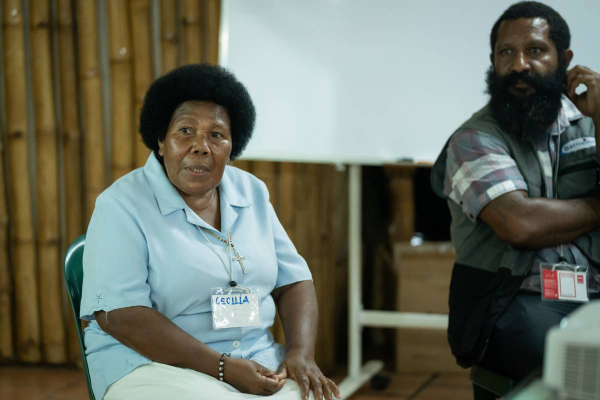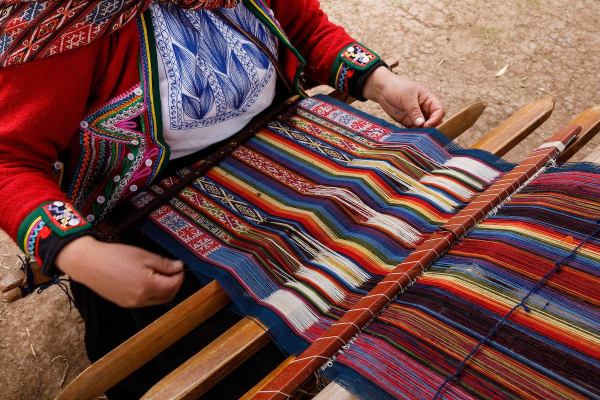What Are You Waiting On?
A look at Psalm 27.

When I was growing up as a missionary kid in the Philippines, my friends and I often amused ourselves in foolish ways. Some afternoons we climbed a mango tree and jumped off the top branch, bouncing through the thick foliage until we hit the ground, mostly unscathed. Other days we dug tunnels into the banks of the muddy river that snaked its way along the outskirts of our community.
One method of amusement though was particularly dangerous. We’d ride our bikes to the top of a steep gravel path and then careen back down, gaining enough speed to launch ourselves off an embankment into the swiftly flowing spillway that connected a large spring to the river. The goal was to hang onto our bikes for as long as possible before the rapids ripped the handlebars from our fists. We usually emerged from the water with a few nice bruises and scrapes, but it didn’t seem to us like a risky activity — until the afternoon one boy decided to tie himself to the frame of his bike.
You can see where this is going, right?
My friend hit the spillway at full speed, flipped over in the rapids and scraped along the boulders on the river bottom. By the time we untangled him from his bike and fished him out of the water, he was gasping for breath and bleeding. Nobody ever tried that stunt again.
As an adult I’ve had experiences where I felt like I was hurtling down that spillway, clinging desperately to anything to keep me afloat. I’ve held my breath as I’ve waited for my circumstances to change. I’ve even tried anchoring myself to comforting habits and relationships, hoping to find steadiness but ending up wounded instead.
The psalmist David was also familiar with the feeling of being swept along by situations outside of his control. From his years as a shepherd to his reign over Israel, he encountered promises that seemed to go unfulfilled, opposition that appeared overwhelming and betrayal by people he trusted. In the middle of these trials, David wrote Psalm 27. It begins, “The LORD is my light and my salvation — so why should I be afraid? The LORD is my fortress, protecting me from danger, so why should I tremble?” (v. 1, NLT).
How could David have such confidence in God while his circumstances remained so difficult? The answer is at the end of Psalm 27: “Wait patiently for the LORD. Be brave and courageous. Yes, wait patiently for the LORD” (v. 14).
David had learned what it meant to wait on God, and there is a lot that we can gain from his example.
Waiting on God
The word translated as “wait” in Psalm 27:14 is translated elsewhere in Scripture as “expect,” “hope for” and — the imagery I find most interesting — “bind together.” David could have waited for his circumstances to get easier; he could have expected people to remain loyal, hoped for things to work out in his favor and bound his heart to the results he desired. But like my childhood friend discovered when he tied himself to his bike, David knew it was dangerous to bind himself to anything that could be swept up in changing circumstances.
How did David bind himself to God and learn to wait patiently and courageously for him? Let’s work our way backward through Psalm 27 and trace David’s thoughts to see what waiting on God looked like for him.
David was frequently under assault by enemies who wanted his throne and his life. While he asked for deliverance from his enemies in Psalm 27:11-13, he mostly focused on God’s guidance and goodness, anchoring his attention to God’s unshifting character: “Teach me how to live, O LORD. Lead me along the right path, for my enemies are waiting for me. Do not let me fall into their hands. For they accuse me of things I’ve never done; with every breath they threaten me with violence. Yet I am confident I will see the LORD’s goodness while I am here in the land of the living” (NLT).
I’ve never been pursued by soldiers and traitors the way David was, but I have faced serious opposition from spiritual enemies intent on destroying my heart, relationships and ministry. I’m sure that at times you’ve also felt this way: like you’re under attack by the enemy and wonder how to move forward. During seasons like this, I’ve learned to focus on how God has been good to me in the past and how he is kind to me each day. When we pay attention to God’s faithfulness, it's easier to trust that he will lead us forward along the safest path.
David was able to recognize God’s goodness and trust his guidance because he spent time seeking God and talking honestly with him. He learned to count on God’s steady companionship, choosing to trust that the Lord would be faithful even when no one else was: “Hear me as I pray, O LORD. Be merciful and answer me! My heart has heard you say, ‘Come and talk with me.’ And my heart responds, ‘LORD, I am coming.’ Do not turn your back on me. Do not reject your servant in anger. You have always been my helper. Don’t leave me now; don’t abandon me, O God of my salvation! Even if my father and mother abandon me, the LORD will hold me close” (vv. 7-10, NLT).
If you’ve experienced loneliness or abandonment by people, you may feel like God might leave you as well. This fear is natural; David felt it too. But instead of pulling away from God when facing these feelings like I’ve sometimes been tempted to do, David responded to God’s invitation to talk with him and openly acknowledged his fears.
David was willing to talk honestly with God because he understood that the Lord’s presence is a safe shelter, no matter what: “The one thing I ask of the LORD — the thing I seek most — is to live in the house of the LORD all the days of my life, delighting in the LORD’s perfections and meditating in his Temple. For he will conceal me there when troubles come; he will hide me in his sanctuary. He will place me out of reach on a high rock. Then I will hold my head high above my enemies who surround me. At his sanctuary I will offer sacrifices with shouts of joy, singing and praising the LORD with music” (vv. 4-6, NLT).
Notice that David said that God would conceal him when troubles came and would place him out of reach of his enemies. The troubles and enemies were still present — they just weren’t able to truly threaten David. It may seem counterintuitive, but the times I’ve felt the safest have been when the Holy Spirit has guarded my mind and emotions in the midst of a crisis. In these times, I’ve seen clearly that no turn of events, heartache, loss or evil scheme can threaten my soul’s safety or disrupt God’s good plan for me because God himself is my safety.
The unshakable safety of God’s sheltering presence, regardless of the circumstances, enabled David to boldly proclaim: “The LORD is my light and my salvation — so why should I be afraid? The LORD is my fortress, protecting me from danger, so why should I tremble? When evil people come to devour me, when my enemies and foes attack me, they will stumble and fall. Though a mighty army surrounds me, my heart will not be afraid. Even if I am attacked, I will remain confident” (vv. 1-3, NLT).
As David waited on the Lord, he didn’t stew in anxiety, tie his hope to changing circumstances or even passively bide his time; waiting meant actively anchoring himself to God, focusing on his guidance and goodness, communicating honestly with him, trusting his sheltering presence and confidently declaring his victory while the battle still raged.
What are you waiting on right now? An easier season? The fulfillment of a dream? Justice and healing? A sense of purpose or belonging? Whatever situation you’re facing, when you choose to bind your hope to God’s unwavering character, promises and presence, you’ll experience this truth: “The LORD is my light and my salvation — so why should I be afraid?” (Psalm 27:1a, NLT)
Anchor Points:
God's Word is our anchor and hope. But there are millions of people around the world who don't have access to the truth of Scripture in their own language. As you practice waiting on God, tie your hope to steady biblical truths like these and pray for those without Scripture:
- He’s compassionate, merciful and forgiving (Psalm 103:8, Lamentations 3:22, 1 John 1:9).
- He’s involved in the details of our lives (Psalm 139:16, Romans 8:26-30).
- He tenderly comforts and heals (Psalm 56:8, Psalm 147:3, 2 Corinthians 1:3).
- He’s powerful and in control (2 Chronicles 29:11-12, Luke 8:22-25).
- He brings restoration, life and victory (Isaiah 55:10-13, 1 Corinthians 15:54-57, Ephesians 1:9-10).
Discover how you can partner with communities around the world who are still waiting for the hope of Scripture in their language.






